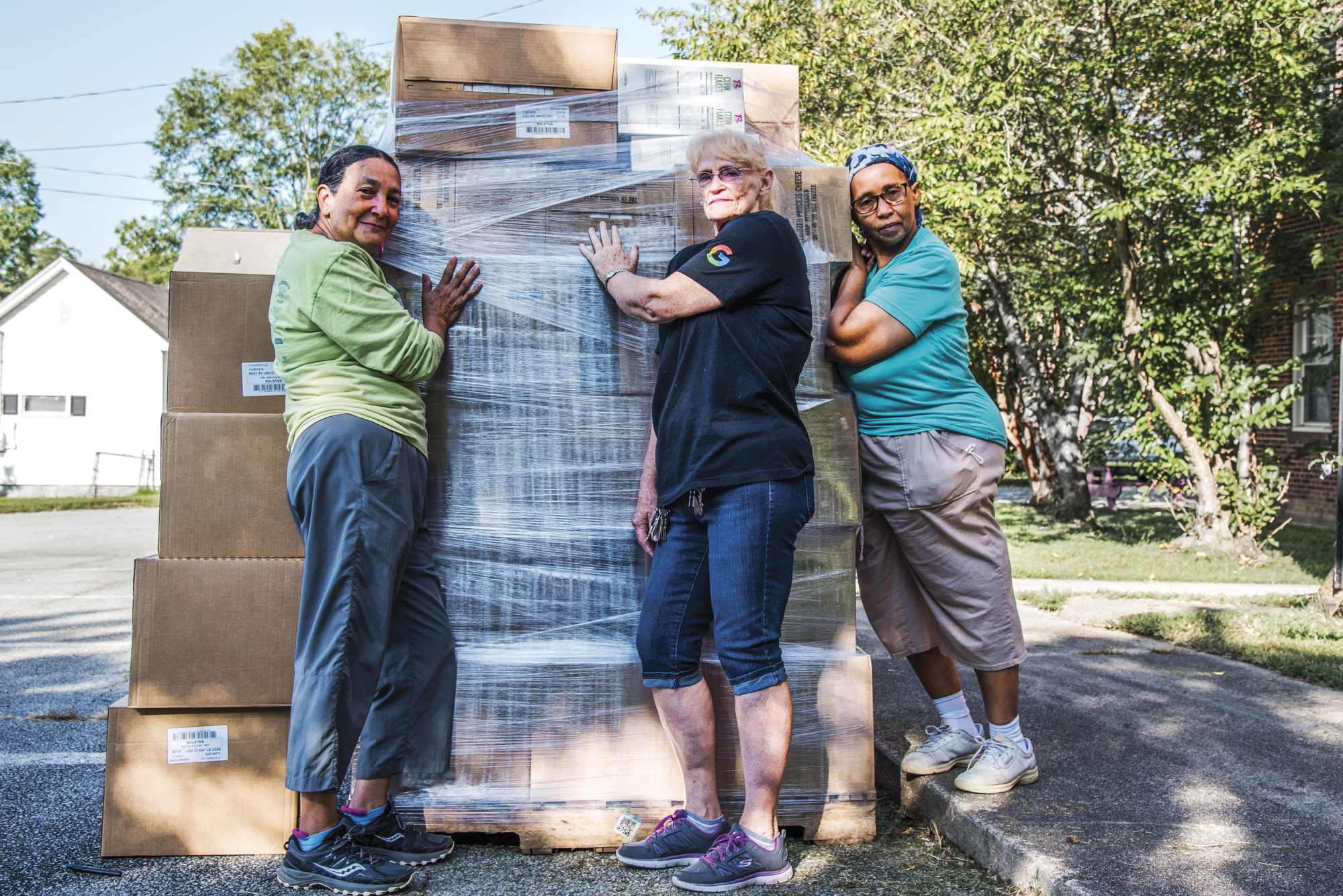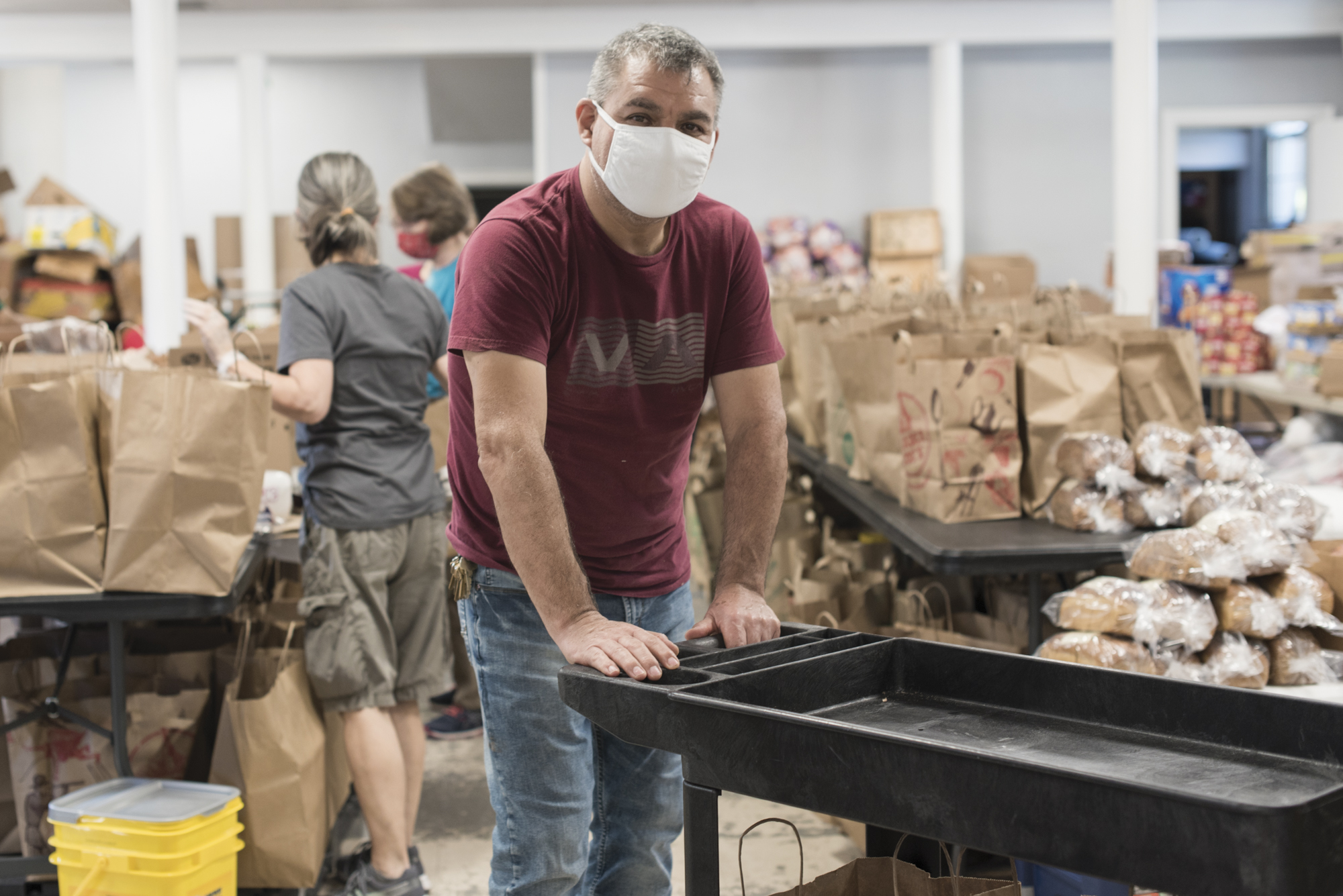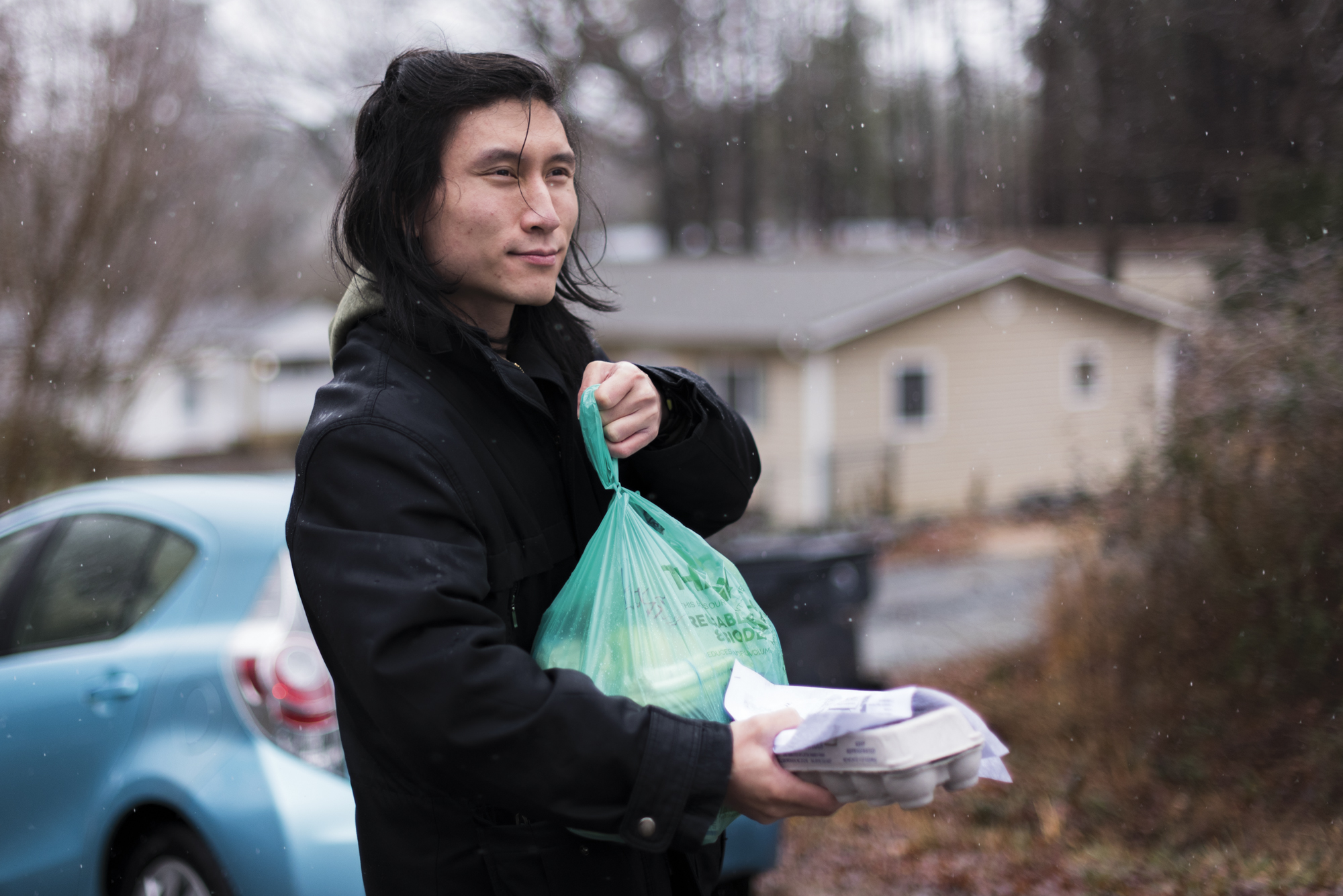Durham County Food Security
go.ncsu.edu/readext?813919
en Español / em Português
El inglés es el idioma de control de esta página. En la medida en que haya algún conflicto entre la traducción al inglés y la traducción, el inglés prevalece.
Al hacer clic en el enlace de traducción se activa un servicio de traducción gratuito para convertir la página al español. Al igual que con cualquier traducción por Internet, la conversión no es sensible al contexto y puede que no traduzca el texto en su significado original. NC State Extension no garantiza la exactitud del texto traducido. Por favor, tenga en cuenta que algunas aplicaciones y/o servicios pueden no funcionar como se espera cuando se traducen.
Português
Inglês é o idioma de controle desta página. Na medida que haja algum conflito entre o texto original em Inglês e a tradução, o Inglês prevalece.
Ao clicar no link de tradução, um serviço gratuito de tradução será ativado para converter a página para o Português. Como em qualquer tradução pela internet, a conversão não é sensivel ao contexto e pode não ocorrer a tradução para o significado orginal. O serviço de Extensão da Carolina do Norte (NC State Extension) não garante a exatidão do texto traduzido. Por favor, observe que algumas funções ou serviços podem não funcionar como esperado após a tradução.
English
English is the controlling language of this page. To the extent there is any conflict between the English text and the translation, English controls.
Clicking on the translation link activates a free translation service to convert the page to Spanish. As with any Internet translation, the conversion is not context-sensitive and may not translate the text to its original meaning. NC State Extension does not guarantee the accuracy of the translated text. Please note that some applications and/or services may not function as expected when translated.
Collapse ▲In Durham County, based on the most recent Community Health Assessment, some residents skipped meals or ate less food because they did not have enough money. The effects of the COVID pandemic, coupled with economic and other changes, have made it even harder for people to have enough money to buy food, especially for families with lower incomes.
Food security: Being able to always buy or safely get nutritious food.
Durham County Government is committed to developing a just food system that is better for the planet and works to end food insecurity.
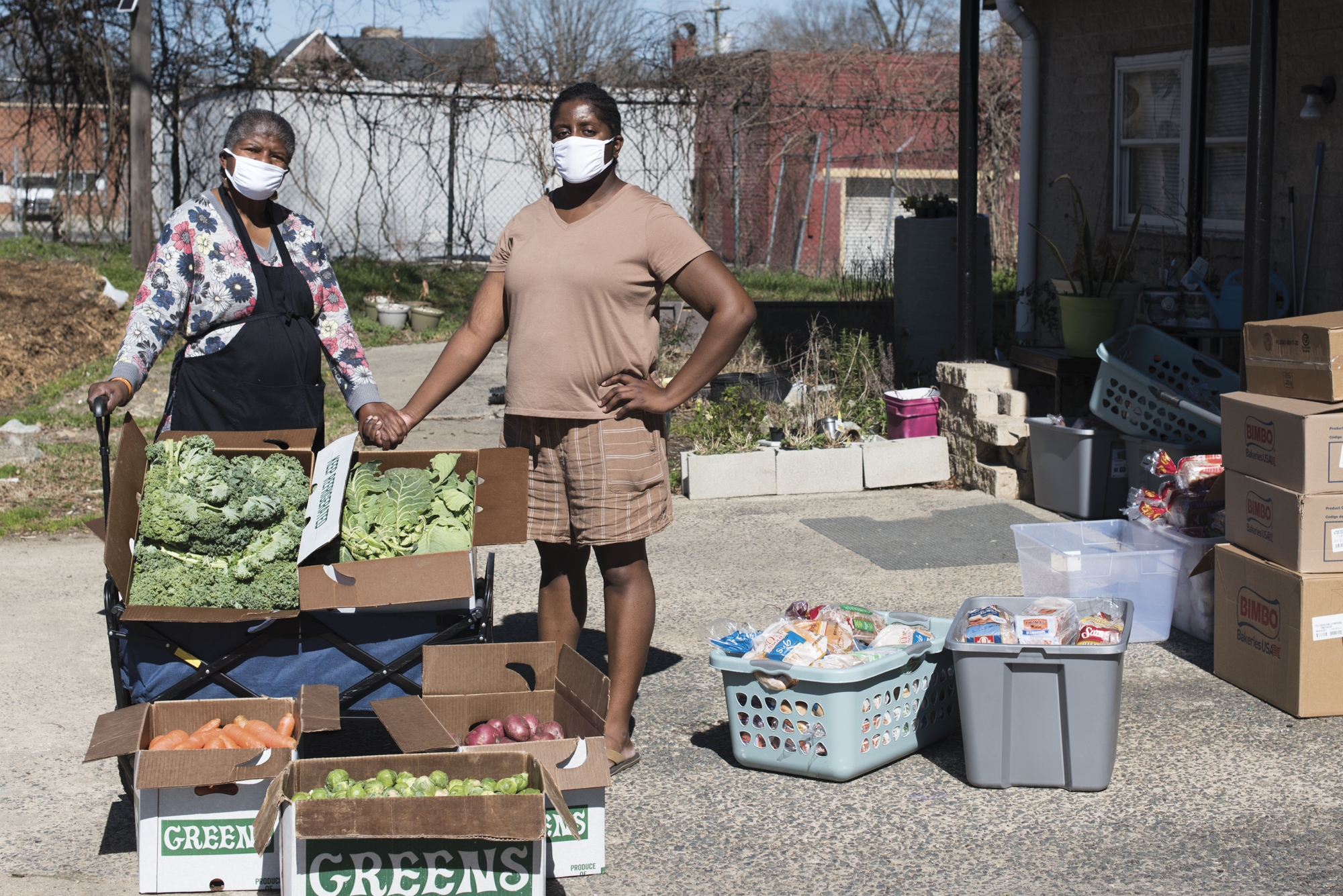
Marcella Thompson, through the Mustard Seed Project, provides nutritious food and other assistance to over 250 families. With the help of her daughter Alexandria, she picks up baked goods, USDA boxes, and vegetable donations from NC Black Farmers Tall Grass Food Box.
Durham Food Security Network
With direction from the Durham County COVID-19 Emergency Operations Center and in partnership with organizations, Durham County staff started the COVID-19 Food Security Task Force in April 2020. The Task Force helped get emergency food contracts, worked with community partners, and gave out masks and other supplies. The Task Force had regular virtual meetings for partners to share information and build relationships. Through this work, Durham County spent more than $1 million to help provide food for people in need. The Triangle Nonprofit & Volunteer Leadership Center presented the “Community Spirit Award” to the Durham County COVID-19 Food Security Task Force in June 2021.
The group continues to meet and has evolved, shifting its focus on food justice, along with emergency food assistance. In early 2022, the group changed its name to the Food Security Network (the Network) with the stated purpose of uniting efforts and transforming systems to ensure that all people have access to enough safe and nutritious food. The group aims to create a food system that is resilient and sustainable for all people of Durham.
The Network created a Steering Committee made up of to community members to support and inform the work. Steering Committee members include:
- Adrian Tucker
- Erika Smith-Punches
- Fiorella Horna
- Kate Brodie
- Kelly Warnock
- Kylee McCombs
- Linden Thayer
- Monique Bethell
- Shaneeka Moore Lawrence
- Taniscia Davis
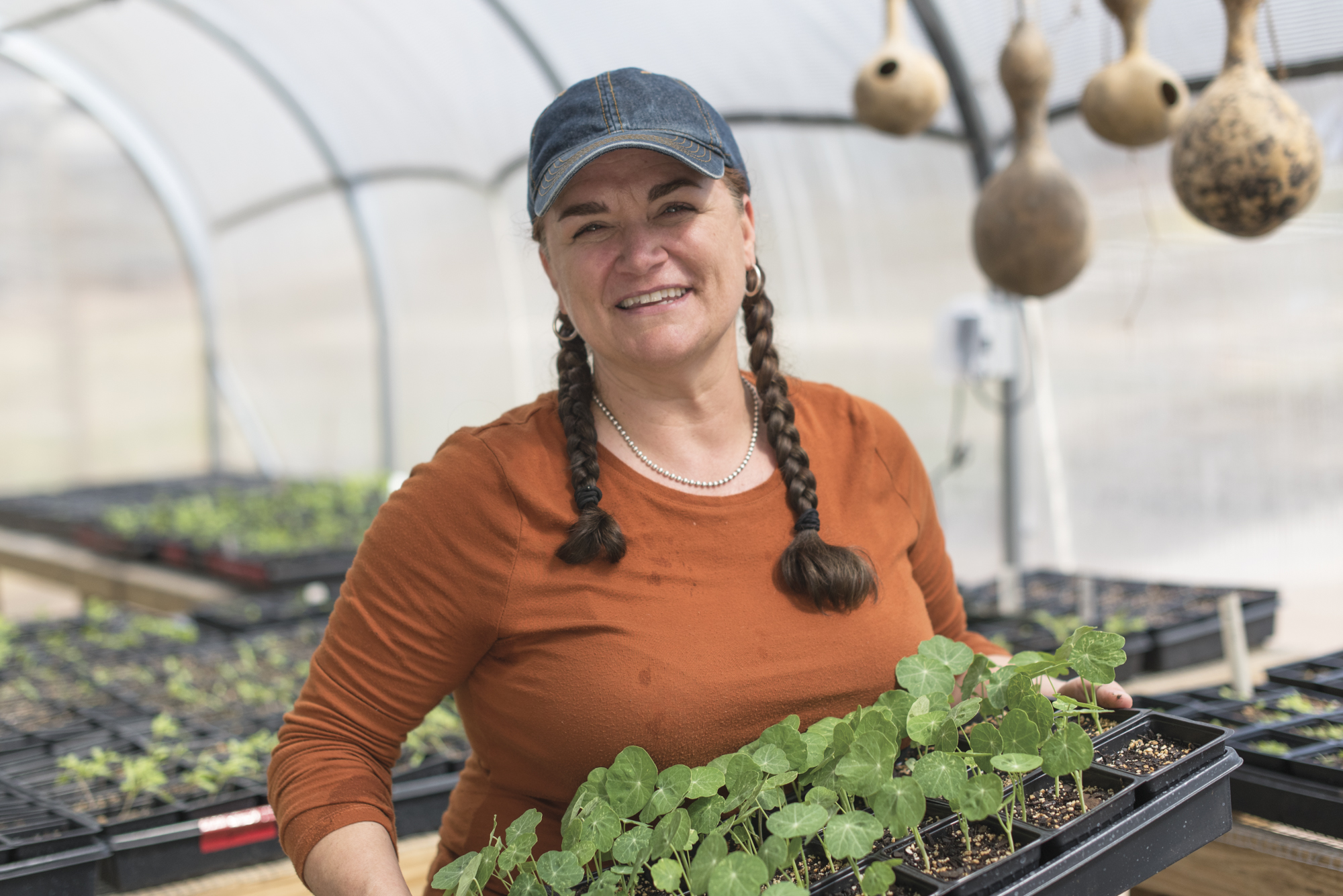
Cheralyn Berry, N.C. Cooperative Extension of Durham County Agent, runs the Briggs Avenue Community garden program. Through the work of volunteers, the garden supplied the Durham Tech food pantry with 1,750 lbs of food in 2020. They also gave away 8,000 plants, installed raised gardens for elders, and delivered produce to gardening families who have been unable to get there.
Food Security Coordinator
Raina Goldstein Bunnag is Durham County’s Food Security Coordinator. She works to improve access to nutritious food and develop sustainable solutions for the community. The County created this position to support the community to create a strong food system for residents to find affordable and healthy food. Want to get involved in this community-led work? Contact Raina at rbunnag@dconc.gov or join the Durham County Food Security listserv.
Community in Action: Reaching Out to Durham’s Hungry Project
The Reaching Out to Durham’s Hungry project is a beautiful photo exhibit that documents some of the amazing work Durham community members are doing to help their neighbors who are food insecure. Rhonda Klevansky thoughtfully helps tell the story of food security work in Durham. Find banners and photos around Durham or visit End Hunger Durham.
Feed My Sheep of Durham Food Pantry offers Hope, Healing, and Hospitality throughout the city. They take care of 240 families twice a month, up from 50 families before the pandemic. It is organized by Jacquelyn Blackwell with the help of volunteers including Dilly Garcia and Helen Taylor, as seen in this photograph.
Guillermo Salamea, at the Iglesia Presbiteriana Emanuel pantry. He and 70 volunteers have been feeding nearly 600 families every week, up from 60 people before the COVID-19 pandemic.
Julian Xie, one of the founders of the Duke Root Causes Fresh Produce Program, delivering food. The program serves 300 patients referred mainly from Duke primary care clinics and Lincoln Community Health Center, and every week, a squadron of volunteers, Duke graduate, professional, and undergraduate students, take food on a rotating schedule to the homes of 150 families. Their long-term goal is that healthcare will encompass food distribution and equitable access to good nutrition.
Food Security Resources
Durham Resources
- Durham County Food & Nutrition Services (SNAP or food stamps)
- Lincoln Community Health Center (WIC)
- Searchable list of food pantries compiled by End Hunger Durham
- Meals on Wheels Durham
- GoDurham Senior Shuttle
- Farmers Market Double Bucks Program
- Food Resources in Durham, NC
State and National Resources
- Legal Aid of North Carolina – Extra Food Stamps are ending & what you need to know
- No Kid Hungry NC
- Johns Hopkins University Food Policy Networks






